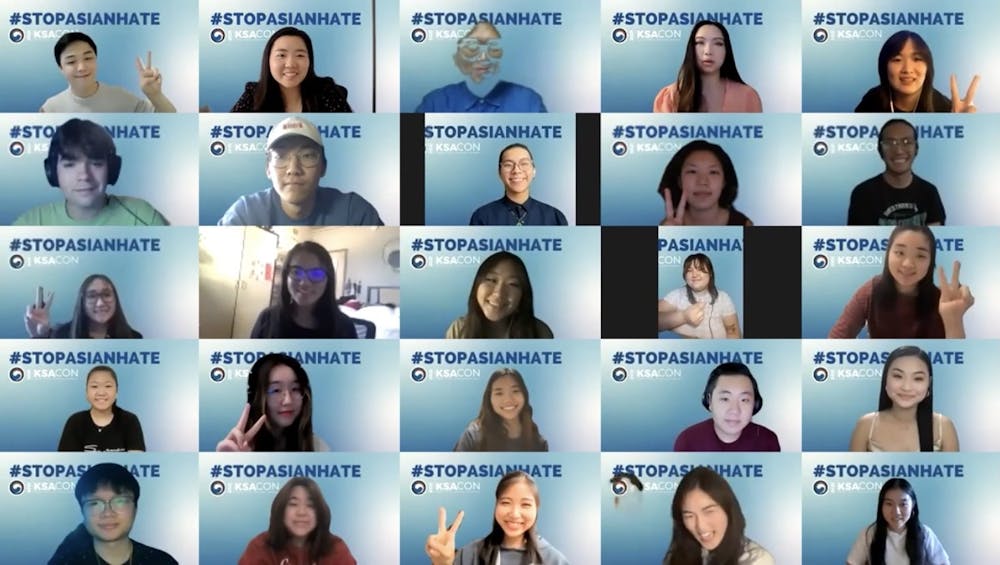American University’s Korean Student Association (AUKSA) held its first convention on April 9, meeting virtually with other student groups from across the country to address recent violence against the Asian American and Pacific Islander (AAPI) community, experiences at predominantly white institutions and opportunities to cultivate community.
According to Jaimie Lee, vice president of AUKSA, over 60 students from 19 different universities attended the first-ever KSAcon.
“It was really gratifying to see the final product and to see all of our work come to fruition,” Lee said. “I thought it went really well, it went even better than I expected.”
Though the event was planned for several months, the executive board pivoted its messaging several weeks before KSAcon, following the Atlanta-area spa shootings on March 16, which left eight people dead, including six women of Asian descent. Hate crimes against the Asian community also rose by nearly 150 percent in 2020, according to The Center for the Study of Hate and Extremism at California State University, San Bernardino.
“As soon as the Atlanta shootings happened we, as the e-board, decided to shift the focus from being more about Korean identity to talking about these incidents and how that kind of manifested within our own communities, regardless of where we were located,” Lee said.
Washington congressional representative Marilyn Strickland, who identifies as African American and Korean American, recorded a message for KSAcon stressing the rise of anti-AAPI hate crimes and the importance of representation in politics.
“We know that representation is so important at all levels of government,” Strickland said. “We know that for so long, it is felt as though the Asian Pacific Islander community has been forgotten, and even sometimes erased. I think about the violence that's taking place right now across the United States, people being bullied, being harassed and sadly people dying who belong to the AAPI community. We know that it's time for us to speak up and to use our voices.”
AUKSA also welcomed Son Ju Han, a speaker from South Korea, who asked questions in Korean with AUKSA President Hyunmin Kim translating. Han asked questions to eight student panelists about the Korean-American experience as college students at predominantly white institutions, the separation between their Asian, Korean and American identities and what solidarity means in the Asian community.
Multiple panelists talked about the transition from high school to college as Korean Americans, and said that their respective KSAs helped them embrace their identities through the change.
The conference made a concerted effort to create a welcoming environment for the schools that joined. Each school pre-recorded “TV show” style introductions that showcased members of their executive boards. In breakout rooms, the participants also had the opportunity to talk in smaller groups.
Lee commended AU for putting out a statement after the Atlanta-area shootings, while acknowledging more work needed to be done.
“I was very surprised at how quickly AU put out a statement about #StopAsianHate,” Lee said. “I was happy to see that because I know a lot of people said that their schools hadn't released a statement but AU had released a statement very early on … that they're willing to put out a statement like that I think is a step in the right direction.”
Though she said the administration is making improvements, Lee still would like to see AU make a more serious commitment to its Asian Studies programs, growing in resources, professors and courses. Students can’t major in Korean at AU, which is discussed among members of the AUKSA.
Lee said the organization plans to hold another event next year and hopes for similar turnout. In the past, the executive board predominantly communicated with DMV-area schools, but Zoom allowed them to interact with schools across the country.
“KSAcon believes that it is our duty to hold a safe space for our community,” students from attending universities wrote in a joint statement. “By unifying Korean American Associations across the country, we hope to build a community and facilitate a space to hear different experiences.”





